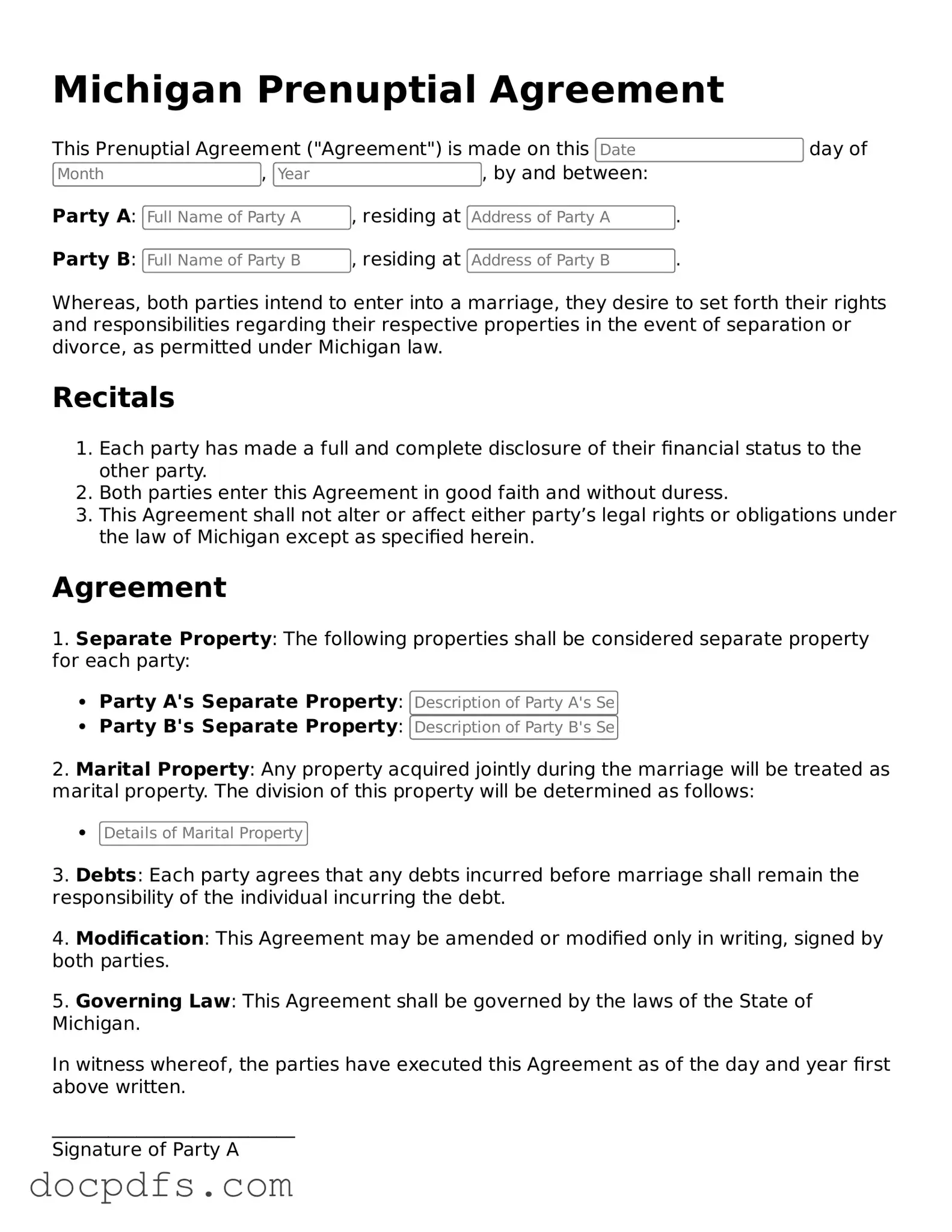What is a prenuptial agreement in Michigan?
A prenuptial agreement, commonly referred to as a prenup, is a legal contract entered into by two individuals before marriage. In Michigan, this agreement outlines the distribution of assets and responsibilities in the event of divorce or separation. It can also address financial matters during the marriage. This document serves to protect both parties’ interests and can provide clarity and peace of mind as they enter into a marital relationship.
What are the requirements for a valid prenuptial agreement in Michigan?
For a prenuptial agreement to be considered valid in Michigan, it must meet several key requirements:
-
Both parties must enter into the agreement voluntarily, without any coercion or undue pressure.
-
Full and fair disclosure of each party's financial situation is essential. This includes assets, debts, and income.
-
The agreement must be in writing and signed by both parties.
-
It should be executed before the marriage takes place.
-
The terms of the agreement must be reasonable and not unconscionable.
Can a prenuptial agreement be modified after marriage?
Yes, a prenuptial agreement can be modified after marriage, but both parties must agree to the changes. This modification should also be in writing and signed by both individuals to ensure its enforceability. It is advisable to consult with legal counsel when making modifications to ensure that the new terms are clear and legally binding.
What can be included in a Michigan prenuptial agreement?
A Michigan prenuptial agreement can cover a variety of topics, including:
-
The division of property and debts in the event of divorce.
-
Spousal support or alimony arrangements.
-
Management of financial responsibilities during the marriage.
-
Provisions for inheritance and estate planning.
-
Any other financial matters that the parties wish to address.
However, it is important to note that certain issues, such as child custody and child support, cannot be predetermined in a prenup, as these matters are ultimately subject to the court's discretion.
How does one create a prenuptial agreement in Michigan?
Creating a prenuptial agreement in Michigan involves several steps:
-
Both parties should discuss their financial situations and expectations openly.
-
Consulting with separate legal counsel is highly recommended. Each party should have their own attorney to ensure that their interests are adequately represented.
-
Draft the agreement, making sure to include all necessary provisions.
-
Review the document together and make any necessary adjustments.
-
Sign the agreement in the presence of a notary public to ensure its validity.
What happens if a prenuptial agreement is challenged in court?
If a prenuptial agreement is challenged in court, the court will examine several factors to determine its validity. These factors may include:
-
Whether there was full disclosure of assets and liabilities.
-
Whether both parties had the opportunity to seek independent legal advice.
-
The circumstances under which the agreement was signed, including any evidence of coercion or duress.
-
The overall fairness and reasonableness of the agreement's terms.
The court's goal is to ensure that the agreement was entered into fairly and that it reflects the true intentions of both parties. If the agreement is found to be valid, it will generally be upheld.

